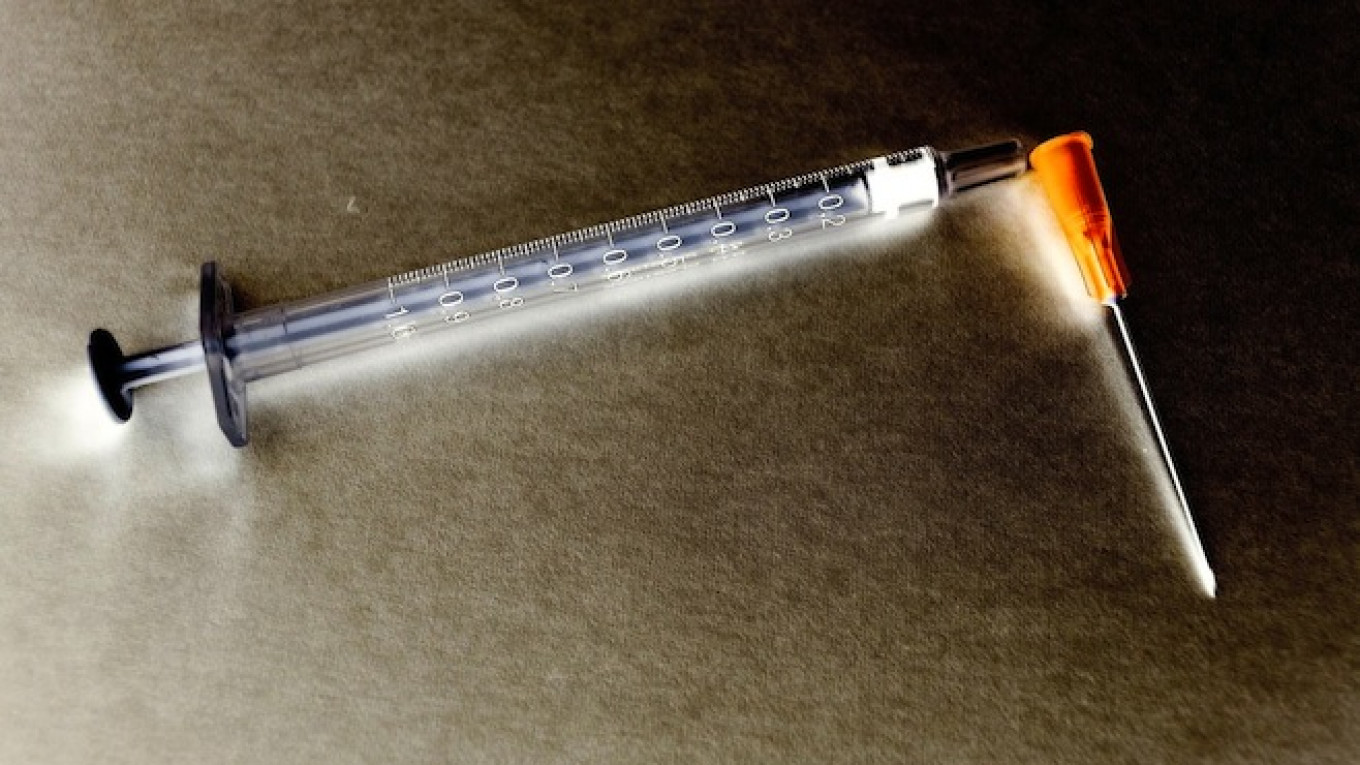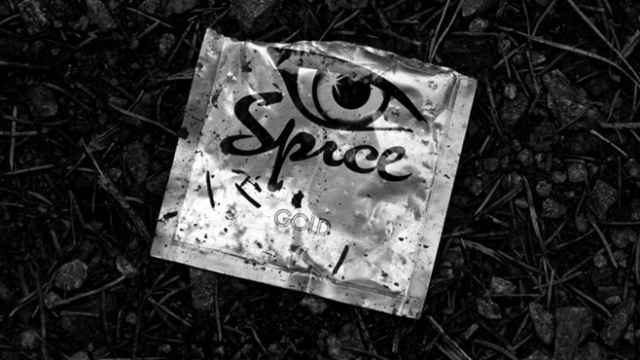The Federal Drug Control Service's proposal to revive Soviet-era work camps in order to treat drug addicts was met with skepticism by leading health researchers and activists, who said Wednesday that the state's insistence in linking addiction with criminality perpetuates inefficient drug control practices.
Viktor Ivanov, head of the Federal Drug Control Service (FSKN), said at a meeting of the State Anti-Drug Committee on Wednesday that nearly one million Russian drug addicts could be reintegrated into society by working in labor camps instead of wasting away in prison, RIA Novosti state news agency reported.
"We haven't created anything since getting rid of the [Soviet-era] 'medicinal work therapy centers,'" RIA Novosti quoted Ivanov as saying. "In a quarter of a century, we have not been able to counter the catastrophic growth of the illegal drug trade and the narcotization of the population."
Ivanov said that 400,000 "ordinary" drug addicts — individuals who were not involved in serious drug-related crime — serving prison terms had cost the justice and penitentiary systems more than 500 billion rubles ($10 million) during the last five years.
The federal drug tsar did not offer a timeline for the adoption or implementation of his proposals, nor did he suggest the type of work addicts would do in the labor camps.
Despite having some of the world's most stringent anti-narcotics legislation, Russia is home to more than eight million drug users, according to the FSKN.
Specialists on drug addiction dismissed Ivanov's claim that so-called "medicinal work therapy centers" from the Soviet era — labor camps in which alcoholics and other addicts were kept under Interior Ministry surveillance — would constitute an efficient method for addicts' rehabilitation.
"These centers never reaped results and it's good that they were closed [in 1993]," Oleg Zykov, head of the Institute of Narcological Health of the Nation, told The Moscow Times. "I don't think the labor centers Ivanov is suggesting will replicate that of the Soviet era, which essentially housed slaves. But I still think this is the wrong approach to Russia's drug problem."
Anna Sarang, president of the Andrei Rylkov Foundation for Health and Social Justice, a Moscow-based organization that promotes awareness about drug addiction, said there was "no scientific basis" suggesting that labor could spur addicts' recovery.
Criminalizing Addiction
President Vladimir Putin launched a national anti-drugs policy in 2010, mandating the FSKN to create a nationwide interagency "rehabilitation and re-socialization" program for drug addicts. In 2013, Putin approved legislation empowering Russian courts to send convicted drug offenders to rehabilitation. Some 20,000 drug addicts have been ordered by go to rehab by courts, according to Ivanov's comments carried by RIA Novosti.
The FSKN has yet to complete the program Putin ordered five years ago. Last January, the president urged Ivanov to complete the program "as quickly as possible."
There is currently no unified drug addiction rehabilitation system in Russia. State rehabilitation facilities are often full, leading addicts to turn to dubious institutions — many run by religious organizations — that are not qualified to deal with the challenges of drug addiction.
There have also been rampant reports of patient abuse at institutions presenting themselves at rehabilitation centers. The director of an unlicensed rehabilitation center in Siberia's Kuzbass region was found guilty in 2013 of murdering a patient, Russian media reported at the time.
Specialists in the field of drug control attributed the FSKN's sluggishness in part to its amalgamation of two distinct issues: addiction and drug trafficking.
"In most countries, a drug addict is considered a sick person," Zykov said. "Sick people need to be treated. Criminals — people who profit from the drug trade — should be punished. These two notions have been confused. Drug addicts are equated to criminals. The FSKN doesn't know what it is fighting for anymore."
Staying Out of Prison
Ivanov also said Wednesday that individuals caught in possession of amounts of drugs consistent with personal use should be treated with more leniency, a proposal addiction specialists endorsed. Current legislation, Ivanov was cited by media as saying, makes no distinction between the crimes of the worst drug traffickers and that of a local junkie who carries three grams of heroin in his or her back pocket.
Three-quarters of 600,000 individuals convicted in drug-related cases were in possession of amounts that were likely for personal consumption and had no intention of selling drugs, Ivanov said in comments carried by RIA Novosti. The other quarter were convicting of dealing drugs.
Zykov told The Moscow Times that prior to 2004, individuals found in possession of "heroin dust" — small traces of the drug — faced lengthy prison terms. The law became less strict for drug possession but still remains much harsher than in many other countries. In the U.S. state of Massachusetts, possessing less than one ounce (28 grams) of marijuana for personal consumption is a civil offense that carries a maximum fine of $100. In Russia, the threshold for the same offense is six grams, and it is punishable by either a fine of up to 5,000 rubles ($100) or up to 15 days in detention.
"Of course we can view Ivanov's proposal as a positive step toward keeping drug addicts out of prison," Sarang said. "But the FSKN, which does not base its proposals on any research or analysis, has been saying for the past few years that it would jail all drug offenders. Tomorrow, Ivanov could go back on his statement. I view this [proposal] as an attempt to remind everyone that the FSKN still exists."
Reports emerged in February that the service was going to be disbanded and its functions redistributed among the interior and health ministries. Although the reports turned out to have no basis, the FSKN's bold announcements could be an attempt to remind the Russian bureaucracy that it is not futile, Sarang added.
Conservative Attitudes
The Levada Center, an independent pollster based in Moscow, found that more than 60 percent of Russians would be in favor of imposing mandatory drug tests in schools, and using them as criteria for university acceptance and hirings on the job market.
A poll conducted last June on a representative sample of 1,600 adults, with a margin of error not exceeding 3.4 percent, found that 62 percent of the population supports court-ordered treatment for drug addicts.
"I think public opinion has started to view drug addicts as sick individuals," Sarang said. "But populist tendencies remain, as we have seen with Ivanov's labor camp proposal."
The Russian population's stance on recreational drugs remains conservative, despite a steady increase in liberal attitudes in the last decade. In 2006, 5 percent of Russians were in favor of legalizing "soft" drugs such as marijuana, according to a Levada Center poll. Last year, that figure stood at 14 percent.
"For the time being, proposals to help drug addicts are in the realm of rhetoric — not politics," Zykov said. "We can just hope that they will one day enter the political realm in a productive manner."
Contact the author at g.tetraultfarber@imedia.ru
A Message from The Moscow Times:
Dear readers,
We are facing unprecedented challenges. Russia's Prosecutor General's Office has designated The Moscow Times as an "undesirable" organization, criminalizing our work and putting our staff at risk of prosecution. This follows our earlier unjust labeling as a "foreign agent."
These actions are direct attempts to silence independent journalism in Russia. The authorities claim our work "discredits the decisions of the Russian leadership." We see things differently: we strive to provide accurate, unbiased reporting on Russia.
We, the journalists of The Moscow Times, refuse to be silenced. But to continue our work, we need your help.
Your support, no matter how small, makes a world of difference. If you can, please support us monthly starting from just $2. It's quick to set up, and every contribution makes a significant impact.
By supporting The Moscow Times, you're defending open, independent journalism in the face of repression. Thank you for standing with us.
Remind me later.






